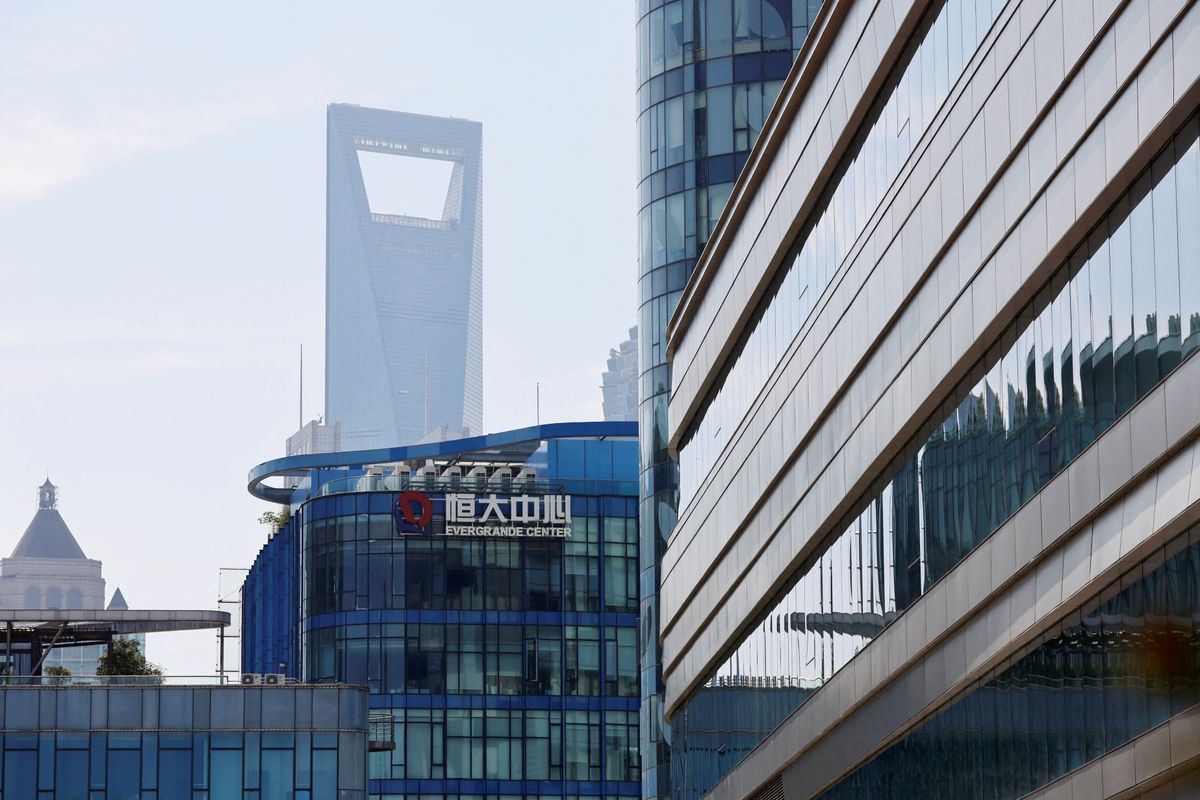Evergrande plunges 79% market value after trading resumes
Late in 2021, a crisis started brewing in China's property market, and Evergrande, a once-powerful real estate player, found itself at the center of the storm

A few minutes every morning is all you need.
Stay up to date on the world's Headlines and Human Stories. It's fun, it's factual, it's fluff-free.
The backstory: Late in 2021, a crisis started brewing in China's property market, and Evergrande, a once-powerful real estate player, found itself at the center of the storm. This crisis brought loan defaults, stalled projects and unpaid suppliers, shaking up the world's second-largest economy, which gets a big chunk of its GDP from the real estate sector.
Evergrande was weighed down by a debt of over US$300 billion, tied up in complex bonds and financial obligations, which it defaulted on in 2021. Now, the company's in talks with creditors to figure out how to restructure after posting US$81 billion in losses over two years. Evergrande filed for Chapter 15 bankruptcy protection in a US court this month to find stability and shield its US assets as it hashed out deals with creditors.
More recently: This wasn't just about Evergrande, though. Other big players in China's property market have also been grappling with debt issues. For instance, Country Garden, a leading private developer, recently stumbled due to missed payments in US dollars, sparking fears of broader financial problems. These troubles were piled on top of existing challenges like slow international demand, a struggling industrial sector and rising unemployment rates.
The development: Evergrande's rollercoaster journey continues with a bold move back into trading after a 17-month suspension. The result? A 79% plunge caused shares to close at HK$0.35 on Monday. In terms of value, that's a drop from HK$21.8 billion (US$2.78 billion) to just HK$4.6 billion (US$586.29 million). Why make such a move? It's all tied to Evergrande's ambitious plan to restructure its towering offshore debt. Resuming trading was seen as a pivotal step in this strategy. But in the midst of this chaos, Evergrande threw a curveball by postponing crucial votes to September, giving it another month to align its creditors' views.
Now, let's talk about the plan itself. The company needs approval from over 75% of the creditors holding its various debt types to move forward with the restructuring. This plan offers creditors a range of options, from swapping debt for new bonds and stocks tied to Evergrande's holdings as well as those of its associates on the Hong Kong stock exchange.
Key comments:
"Going forward, things will continue to be difficult for both its operations and share performance," said Steven Leung, Hong Kong-based director of UOB Kay Hian. "There's little hope that Evergrande can rely on selling houses to repay debt because homebuyers would prefer state-owned developers, and it won't be able to benefit from stimulus policies."
"We haven't seen meaningful improvement in the property market's fundamentals," said Mark Dong, Hong Kong-based general manager of Minority Asset Management, which manages more than US$1 billion in assets. The firm has cut its holding in property stocks, Dong added.
"To be sure, the economic downturn is putting a great deal of strain on financial sector balance sheets and it does increase the risk of a messy policy mistake if officials don’t handle the situation with care. But we still think a full-blown financial crisis is a tail risk rather than a probable outcome," said Capital Economics in a report.
"The China property sector is like a black hole, so many developers have been dragged into it since two years ago after Evergrande," said Winner Zone Asset Management CEO and CIO Alan Luk. "The central government has yet to introduce (strong) measures because this is too large a hole to fill."




Comments ()